He was not above middle height, with a gaunt face
dominated by a hooked nose and high cheekbones, dressed in a short coat,
trousers and waistcoat of grey cloth that look out of place in Louisville,
Kentucky. Under his arm, he carries two books and he approaches the table where
John James Audubon sat, in the counting house of his general store.
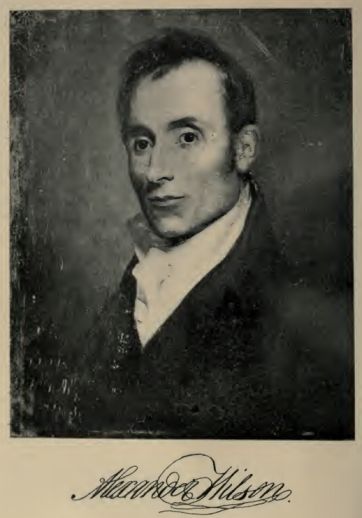 |
| Alexander Wilson |
His name is
Alexander Wilson, originally from Paisley in Scotland, but he had emigrated to
America in search of a better life, like so many of his countrymen, and now he
was looking for subscribers for his book about American ornithology, samples of
which he carries with him. Regardless of the cost, Audubon is keen to add his
name to the list of subscribers, until his business partner, Frederick Rozier,
intervenes. Speaking in French, he says to John,
“My dear Audubon, what induces you to subscribe to this work? Your drawings are certainly far better; and again, you must know as much of the habits of American birds as this gentleman.”
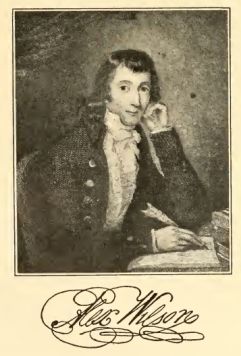 |
| Alexander Wilson |
We don’t know if Wilson understood the words, but he certainly
understands the change in Audubon’s demeanour, as he lays his pen aside. His
friend’s encomiums and his own vanity have put an end to his subscription, and
Wilson’s crest falls further when the Frenchman takes out a portfolio of
drawings of his own.
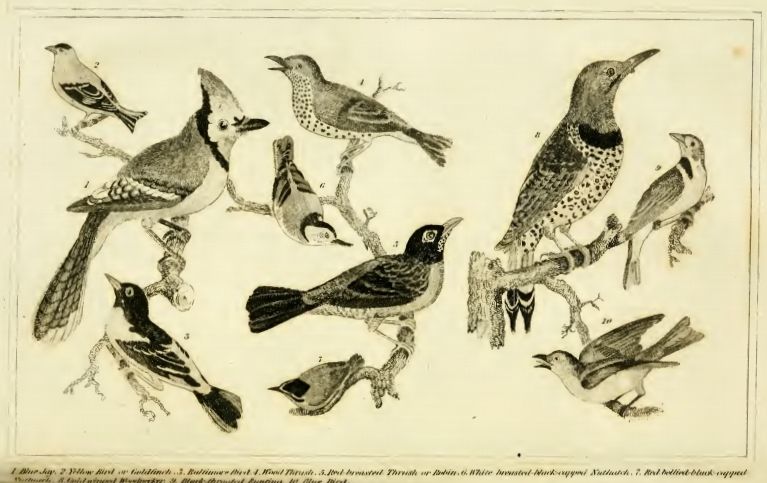 |
| Illustration from Alexander Wilson - American Ornithology |
Birds. So many birds. He shudders in trepidation as he
asks if the artist intends to publish and allows himself a sigh when he replies
in the negative. He asks if he might borrow some of the drawings during his
stay in Louisville, and accompanies Audubon on a collecting trip of species he
has not yet seen. Audubon suggests a correspondence, that Wilson may like to
include some his drawings in his opus, all he asks is that he receives
credit for the works used. Five days later, he leaves for Philadelphia, where
Audubon later visits him. He is received cordially, but there is no mention of
birds, the drawings or the letters, and they part, never to meet again.
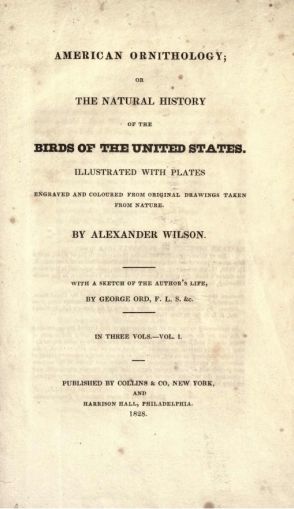 |
| Alexander Wilson - Title Page - American Ornithology |
But
Audubon is surprised, if not shocked, when he later reads in volume nine of
Wilson’s American Ornithology,
“I bade adieu to Louisville, to which place I had four letters of recommendation, and was taught to expect much of everything there; but neither received one act of civility from those to whom I was recommended, one subscriber, nor one new bird; though I delivered my letters, ransacked the woods repeatedly, and visited all the characters likely to subscribe. Science or literature has not one friend in this place.”
Wilson died, unexpectedly, in 1813, and there would be further controversy as
his executors saw to the publication of his works, to which I will return
later. Meanwhile, the once prosperous Audubon and Rozier business began a
downturn in its fortune, as competition moved into the area, with other stores
being opened, and the economic repercussions of the political policies taken
prior to, and during, the Revolutionary War began to be felt. Trade embargoes
affected European imports, and Audubon and Rozier felt that a move further down
the Ohio river might prove to be advantageous, so they took the hundred and
twenty-five mile journey to Henderson, where they opened another store. It was
an ill-judged move, as the country was so sparsely populated that they only
sold the most basic of provisions, largely guns and fishing lines, and another
move was proposed, to St Geneviève on the Mississippi river.
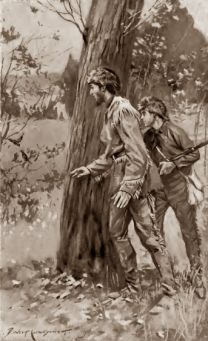 |
| Out Birding in the Wilds |
Audubon and Rozier
set out on a raft for the convergence of the Ohio and Mississippi, but they
became stranded in the winter ice, and laid up in the wilderness, hunting game
for food and making the acquaintance of the local indigenous people, from whom
Audubon learned a great deal about the flora and fauna. With the spring thaw,
they proceeded to St Geneviève, where they had a little success selling whisky
they had bought for 25c per gallon for $2 per gallon, but Audubon had no love
for the French-Canadians of St Geneviève, found the place dirty and noisy, and
eventually he and Rozier agreed to part, with Rozier, who had married a local
woman, buying out Audubon’s share of the stock. Audubon bought a horse and
returned to Henderson, where his wife and infant son had stayed, narrowly
avoiding being murdered by drunken Indians along the way.
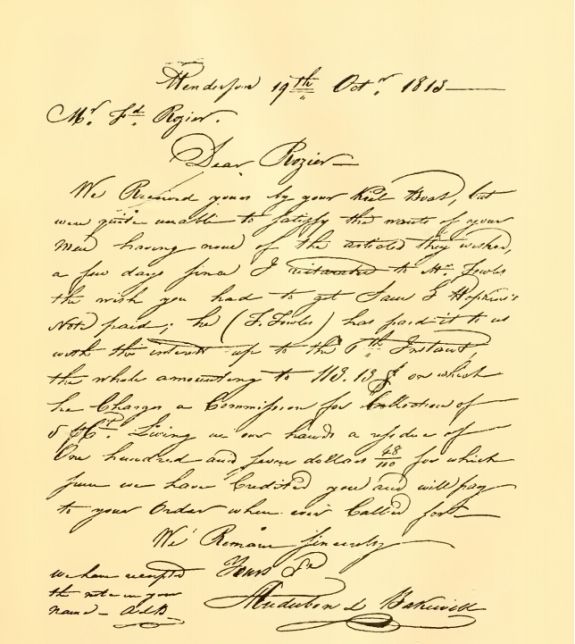 |
| Letter from Audubon to Rozier |
Shortly after his
return, his second son was born, and in November 1813, an earthquake struck the
area around Henderson. Audubon entered into a business partnership with Thomas
Bakewell, his brother-in-law, selling flour, lard, pork and other foodstuffs on
commission, but this enterprise faltered with the outbreak of the 1812 war, but
Audubon persevered and made a success of small store located in a log cabin in
Henderson.
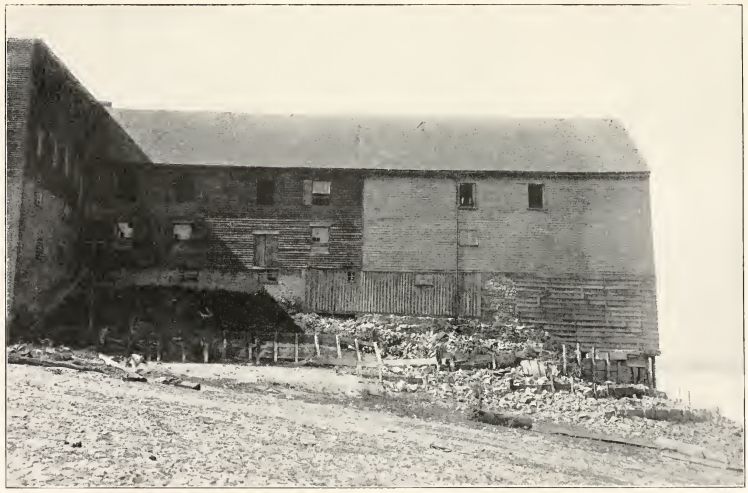 |
| The Mill, Henderson |
He was persuaded by Bakewell to invest in a steam-driven mill, in
partnership with an Englishman, Thomas Pears, with whom had had previously
worked in the Bakewell family offices in New York. The mill had a grist mill
and a steam driven saw, and the three were certain that they would make their
fortunes, which they would had it not been for the simple reason that there was
no grain grown around Henderson and there was no lumber trade, meaning that for
most of the time, the mill stood idle. Audubon received news from France that
his father had died a year previously, leaving the estate there to him (which
he eventually signed over to his sister, Rosa), and seventeen thousand dollars.
However, by the time Audubon obtained the proof of identity required by the
merchant holding the money, that merchant had died in insolvency, and the
inheritance was lost.
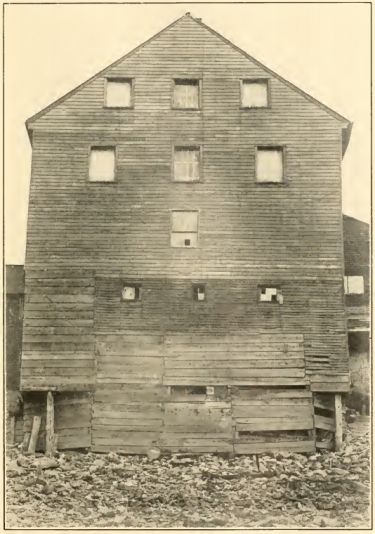 |
| Another view of the Mill |
The mill proved to be a money pit, and eventually went
broke, ruining all involved with mounting debts. Audubon, his wife and two sons
left Henderson in the clothes they stood up in, with only a gun, a dog and his
bird drawings, and took lodgings with a relative in Louisville, where he eked
out a living selling portraits to the locals for $5 per picture.
Tomorrow – Changes all round.
No comments:
Post a Comment